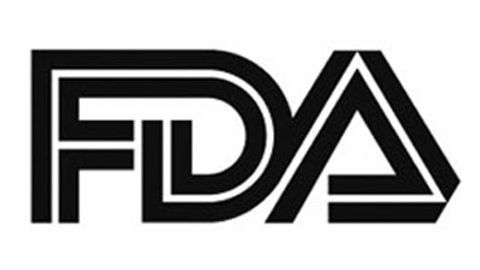FDA Grants Priority Review to NDA for Nab-Sirolimus in Advanced Malignant PEComa
The FDA has granted priority review to the New Drug Application for nab-sirolimus for consideration as a treatment for patients with advanced malignant perivascular epithelioid cell tumors.

The FDA has granted priority review to the New Drug Application (NDA) for the nanoparticle albumin-bound mTOR inhibitor, sirolimus albumin-bound nanoparticles for injectable suspension, nab-sirolimus ABI-009 (Fyarro) for consideration as a treatment for patients with advanced malignant perivascular epithelioid cell tumors (PEComa), announced Aadi Bioscience, Inc, in a press release.1
The NDA is supported by findings from the phase 2 AMPECT clinical trial (NCT02494570), which is exploring the efficacy of nab-sirolimus in this patient population.
“We are very pleased with FDA’s acceptance of our NDA with Priority Review for Fyarro in patients with advanced malignant PEComa, an ultra-rare sarcoma. If approved, Fyarro will be the first FDA-approved therapy for the treatment of patients with this disease. We look forward to working with the FDA during its review and would like to thank the many patients, caregivers, and physicians whose contributions have been invaluable and allowed us to develop this important therapy. In parallel, we continue to work on our commercial preparations to ensure a timely launch for the PEComa patient population, said Neil Desai, PhD, founder, chief executive officer, and president of Aadi Biscience, Inc, in a statement.
According to data presented during the 2020 American Society of Clinical Oncology (ASCO) Annual Meeting and later published in Journal of Clinical Oncology in 2020, nab-sirolimus achieved highly durable responses in patients with advanced PEComa. The analysis included 31 patients who were evaluated by independent radiology review (IRR), meeting its primary end point. All patients were aged 18 years of age or older with an ECOG performance status of 0 or 1, histologically confirmed disease, metastatic or inoperable locally advanced disease m and no prior treatment with an mTOR inhibitor.2
The study’s secondary end points were duration of response (DOR), median progression-free survival (PFS), median overall survival (OS), and safety. The study also assessed mutational status and biomarkers as exploratory end points.
All 31 evaluable patients received nab-sirolimus 100 mg/m2 via intravenous infusion until disease progression or unacceptable toxicity. The confirmed objective response rate was 39% (95% CI, 22%-58%), which included both partial responses (PRs) and complete responses. Fifty-two percent of patients had stable disease (SD) and 10% had progressive disease for a disease control rate of 71% (95% CI, 52.0%-85.8%). In the subgroup of patients with metastatic disease, the ORR was 46% 95% CI, 26.6%-66.6%), all of which were PRs. In the subgroup with locally advanced disease, all responses were SD and the ORR was 0%.
At 1 year of follow-up, the median DOR observed with nab-sirolimus was >25.8 months (range, 5.6-42.4+).
In terms of survival, the median PFS observed with the agents was 8.9 months (95% CI, 5.5 to not reached). The PFS rate was shown at the 3-, 6-, and 12-month time points. At 3 months, the PFS rate was 78.5% (95% CI, 58.5%-89.9%), at 6 months the PFS rate lowered to 69.5% (95% CI, 47.6%-83.7%), and the 12-month PFS was 45.4% (95% CI, 22.6-65.7%).
In 34 patients, the median OS was not reached (95% CI, 22.2 months to not reached). At 6 months, the OS rate observed was 93.2% (95% CI, 75.5%-98.3%), and the 12-month OS rate was 88.8% (95% CI, 68.7%-96.3%).
All treatment-related adverse events (TRAEs) were grade 1 to 3 in severity. No grade 4 or higher TRAEs were observed, and no AEs were unexpected. Pneumonitis was among the most common AEs, occurring in 18% of the overall population. Six percent of patients discontinued nab-sirolimus due to grade 2 anemia and grade 1 cystitis. Overall, the treatment was considered to be well-tolerated as a long-term therapy.
The study is ongoing but no longer recruiting patients with advanced malignant PEComa. A Prescription Drug User Fee Act target action date of November 26, 2021, was set for the approval decision on nab-sirolimus.1
References:
1. Aadi Bioscience announces FDA acceptance and priority review for the new drug application of Fyarro™ for the treatment of advanced malignant PEComa. News release. July 26, 2021. Accessed July 26, 2021. https://bit.ly/3kUZl47
2. Wagner AJ, Ravi V, Riedel RF, et al. Long-term follow-up for duration of response (DoR) after weekly nab-sirolimus in patients with advanced malignant perivascular epithelioid cell tumors (PEComa): Results from a registrational open-label phase II trial, AMPECT. J Clin Oncol. 2020;38(11516). doi: 10.1200/JCO.2020.38.15_suppl.11516








